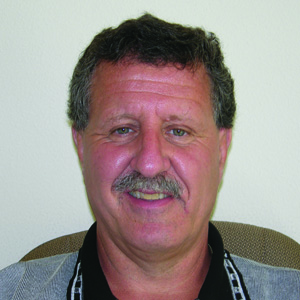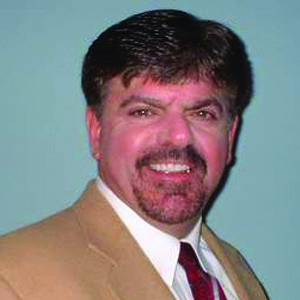
Editor’s Note: This “Point/Counterpoint” article originally appeared in the March 2005 edition of BodyShop Business.
Is it possible to run a body shop without lying, cheating and stealing?
Opinion: No
Rocco Avellini
Owner, Collision Repair Consulting/Wreck Check
San Pedro, Calif.
It isn’t possible for many body shops because the majority of shops have been forced into this position by their or other area shops’ business decisions. These decisions have shops working at such narrow margins that partaking in these practices is the only way to survive. I speak with many shop owners who tell me that insurers, on a daily basis, are making it more difficult to make a profit by not paying for necessary procedures needed and, in many cases, mandated by vehicle manufacturers.
Please understand that my views are from the eyes of a past shop owner who now owns a post-repair inspection company and through speaking with many shop owners and, in some cases, insurance representatives for many years.
I do agree [that many repairers feel forced to lie, cheat and steal]. However, what we need to understand is that the insurance industry doesn’t have a duty to compensate collision repairers. The insurer’s duty under the terms of their contract is to indemnify their insureds for the loss.
Remember, vehicle owners don’t have to repair the vehicle; they can do whatever they wish to do with their insurance check. If the repairer enters into a contract with the consumer for the full amount of the repairs and the insurer doesn’t want to compensate their client, let the consumer deal with the insurer they elected to do business with. Remember, the repairer didn’t purchase the policy or get in the accident. The shop’s only responsibility is to repair the vehicle to the best of its ability with the funds that are available or send the vehicle to another repairer.
I witness fraudulent practice in about 80 to 90 percent of the vehicles I inspect, and that includes either parts not replaced or labor not performed. I also observe collision repairers making false and misleading statements to their customers regarding their rights and repair procedures.
I actually witnessed a shop manager tell his customer that he wouldn’t give them back the two-party [shop and consumer] insurance check because, as he explained, “The insurance company is my customer and if anyone gets the check, it’s going to the shop or the insurance company.” Until repairers understand who their customer is, the problems will never get fixed.

The collision industry has followed in the footsteps of the medical industry and opened the door for an HMO-type repair. It’s good business for insurers to steer as many vehicles to their DRP shops as they can. Remember, it’s all about profit, so why blame insurers for exercising good business practices and getting work done for less money? And yes, once the repairer is on the list, the insurer will and does request additional concessions from the shop to remain on the list. Many DRP-intensive shop owners tell me that if they were to do it again, they wouldn’t get involved with insurance programs because of the lack of profit.
I find that shops that aren’t DRP-intensive have a better chance to complete repairs without resorting to underhanded tactics. Usually dealership shops, repairers who have dealership accounts that have a steady source of work and captured consumers, and shops that have a loyal customer base are less likely to resort to underhanded tactics. I find that these shops have a clearer understanding of who it is they enter into a contract with. Remember, the insurance policy is the contractual agreement the insured enters into with his insurance company and outlines what’s owed under that contract. If the problems are ever going to be corrected, collision repairers should not and must not get in the middle of that fight.
It’s been a downward spiral for many years. It’s the classic “divide and conquer” scenario. As long as the collision industry allows insurers to be their partners, they’ll never gain control of their businesses. Repairers must learn how to price their services, and that price must include a fair profit. Most importantly, it must take into account quality control, equipment purchases and rising costs of running their businesses.
How can an educated person believe that it’s good business to repair a collision-damaged vehicle in the second-largest market area in America for $32 to $38 per hour? And I don’t want to hear, “We make it up in volume.” We all know that’s an untrue statement. That theory may work in other businesses that are allowed to price accordingly, but not in the collision industry, which doesn’t have that luxury.
I believe running a collision repair facility in today’s environment has become, for many owners, a matter of survival. They hope they can make it a few more years and maybe things will change or until their kids get out of college so they can bail.
I feel this victim mentality is what’s causing many shop owners to call it quits. My response to many shop owners is to take a look at the medical industry. Take a look at what doctors have gone through and what they’ve done to regain control of their industry. How many of you have visited a doctor recently or received a letter from your physician alerting you that they’ve stopped working with insurance providers?
I personally see it getting worse before it gets better, by evidence of my physical inspections of consumers’ vehicles. As vehicles become more technical, expensive and difficult to repair, I don’t see shops being compensated fairly for many years. We can only hope that the manufacturers get involved and somehow assist the collision industry by leveling the playing field, such as what BMW has done for its certified facilities.
This problem has been evident in the collision industry for many, many years, but it has been swept under the rug for so long that it has become the norm.
For those of you who believe you can operate a profitable collision business, I extend the challenge that I’ve extended for years now: Let me inspect a random number of vehicles and prove that your shop is creating a profit without partaking in underhanded practices.
Once we identify these shops, we can create a model and educate other shops in these same practices. That would be a win-win for consumers, repairers and the insurance industry – and what is needed to better the collision industry.
[socialpoll id=”2484023″]
Opinion: Yes
Ron Perretta
Owner, Professionals Auto Body
Hollidaysburg, Pa.
Shops aren’t “forced” to do anything. They can choose to lie, cheat or steal, or improve their understanding of the business and manage their numbers.
I agree that some, maybe most, in the insurance industry don’t want to compensate the body shop fairly and don’t understand what it really takes to repair vehicles today. Therefore, body shop owners need backbone to be profitable and fair without resorting to cheating and shortcutting.
Shop owners need to develop a strong knowledge of the industry and good business procedures to improve their profitability. Run your shop like a business and charge fair prices for your work – even if this means some insurance representatives feel that you’re not treating them fairly.
Just yesterday, an appraiser was in one of my stores to look at a towed-in vehicle. The first thing he says to me is, “We’re only paying $40 an hour. Are we going to be able to get an agreement?” I said, “No, we won’t be able to get an agreement and you know that. Shops are writing $42 in our area.” He said, “Ron, I’m asking every shop in town the same thing, and they tell me they’ll agree to it, so it’s the prevailing rate.”
He said that he went to 10 shops and asked body shop owners if they would accept a rate of $40 an hour. All 10 shops in my area agreed. Even if this is true, is this a true market survey or more manipulation? Body shop owners weren’t mailed a survey asking what was a fair labor rate. So who are the dummies? Shops agree to the $40 rate to get the business rather than standing up to the insurance representative for a fair amount. This appraiser was an independent and also manages a local dealer shop, so go figure!

I’ll give you an example [of shops not standing up for what’s right]: I just finished a job that was originally repaired at a Progressive DRP shop. This new 350ZX had dirt all through the paint work, putty cracked in areas and the color didn’t match. When we removed the rear bumper, there were paint sticks taped between the cover and reinforcement to get an alignment rather than properly repairing the body panel and a bracket. The jambs had overspray in them, and when we removed the body work, the metal was filled up with mud.
Upon reviewing a copy of the insurance estimate, the first thing I said was, “It’s not the shop’s fault. They did what they were paid to do.” I know how this particular insurance company works. They don’t want to pay for blends, mask jambs, nib and buff and so on. They’ll fight you tooth and nail to either get you to do it for free or skip these necessary steps for a quality repair.
My local Progressive claims manager told me today that a district manager would review any Progressive claim that comes into my shop. This district manager told me that shops don’t tell them what they need to repair the car – that they tell shops what they’re willing to pay. It was obvious after that conversation that someone must have died and left him boss in his own mind. We’re now working with his supervisor to do the right things.
Some insurance companies not only bully the shops but also their managers and appraisers. If a shop doesn’t fight for time to properly repair the car, I understand why they feel compelled to shortcut (like the repair to the 350ZX). Upon reviewing Progressive’s estimate, this was the only way to make money on this job.
Shops tell me they’re only re-inspected on three out of 10 jobs, so they make money on the other seven.
Some shop owners just don’t have the business knowledge to run the business ethically. They don’t know their numbers and don’t have tracking devices, systems or procedures, and therefore, they don’t have the facts to combat a smarter insurance representative.
Our industry has a great deal of management training available all over the country to provide us with these skills. However, many of us are so busy just trying to survive that we’re afraid to leave our shops.
I’ve also seen shop operators attend the classes but not change. They go back and continue to run the business as they’ve always done. It’s easier to continue to lie, cheat and steal than to change.
On the other hand, some get the training and knowledge, do quality repairs, provide fantastic service, hone in on improving efficiency and then get bullied and tormented by the insurance company representatives for doing the right things. My strength is staying focused on what’s important – satisfying the customer.
Shop owners need to hone in on the deficiencies of their shop and tighten them up along with every other area of the operation. Having a strong relationship with other shops in their area is a big plus, since it provides a united, consistent defense in dealing with insurance companies.
Most body shop owners start their own business so they can run it as they see fit, so they need to resist having repair procedures dictated to them by an insurance company. And lastly, choose your relationships better. Don’t just partner with anyone for the opportunity to fix cars. Profits are important too.
It’s sad. These shops are dropping like flies. It’s hurting them and their families, their technicians and their technicians’ families, along with the industry. But some owners find it easier to be a buddy with the insurance industry representative, and they like you because you’re playing their game, even if it requires you to shortcut customer car repairs. I used to say that that sort of behavior makes it harder to sleep, but maybe you can get accustomed to cheating. You may even justify it as the only way to do business.
I don’t think [shop owners are] controlled by insurers as much as they are manipulated. Shops are continuously told they’re the only ones asking to be reimbursed for nib and buff costs, rub jambs, pre-wash, cleanup for delivery, higher material and door rates.
Prevailing rates should be what the shops are asking for, not what the insurance companies are willing to pay. So if you’re asking to be reimbursed for these costs, you need to stick to it and supplement it. Always keep the customer informed as to what the insurance company wants you to do to his car. As long as you’re being reasonable and fair, hold the car until you’re paid what you’re entitled to.
Yes, you’ll hear “manipulation dialogue” regarding holding the car hostage, being the only shop in the area expecting to be paid for blends, etc., or the insurer will try to upset your customers by contacting them. (And say what? That you wanted to be paid to fix their vehicles properly?)
Here’s what the good manipulators do. They go from shop to shop talking about other shops saying, “I was just at XYZ shop, and can you believe that they asked for X or they did Y? We always have problems with them.” They try to get other shops to be their buddy so they won’t ask and charge for what these other “bad” shops are asking for.
Shop owners need to stand up for themselves and demand they be reimbursed for procedures necessary for a quality repair. I find that the problem is usually with the local representative. After breaking through the layers of management, goals become more consistent with higher ethical standards. Some local representatives seem to need to have power over shops and enjoy bullying them.
I think you’re able to have good relationships, make a fair profit and do high-quality repairs, but only if everyone in the relationship isn’t self-centered and the goal isn’t ‘what’s in it for me and only me.’
Everyone has to win – the customer, the insurance company and the shop. Everyone needs to communicate and work toward the common goal: properly repairing the customer’s vehicle.













